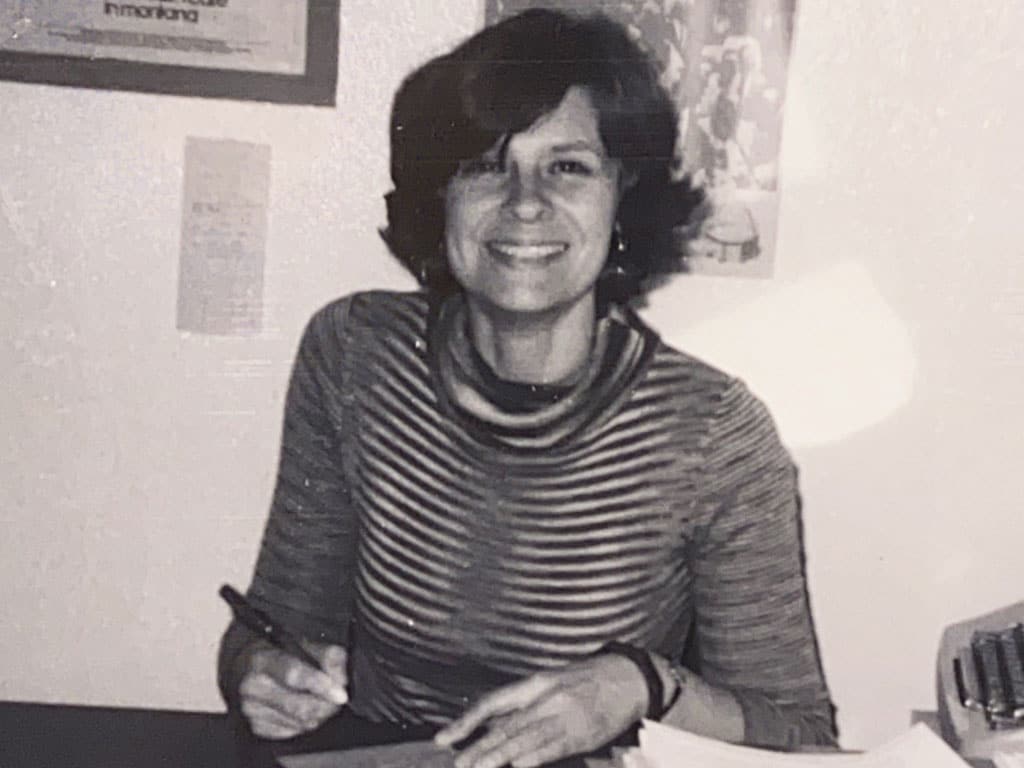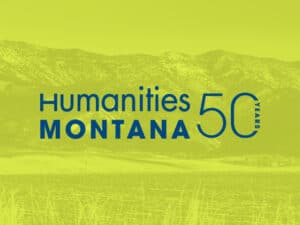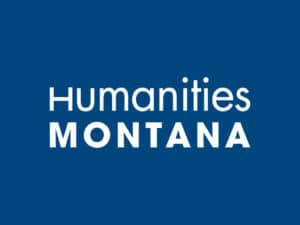Golden Anniversary Letter, October
As Humanities Montana celebrates our 50th anniversary, we have been honored to hear from previous board members and staff and our friends from throughout the state. This month, Dr. Margaret Kingsland, executive director of the Montana Committee for the Humanities from 1974 to 1995, reflects on what 50 years of the humanities has meant to Montana.
The Montana Committee for the Humanities (now Humanities Montana) was formed 50 years ago at the invitation of the National Endowment for the Humanities. Montana was in the midst of an exciting phase in its public life. The creation and adoption of a new state constitution had engaged Montanans from all corners of the state in a vigorous review and assessment of values, priorities, and public policies. The Tribes were reviewing and writing their own constitutions, and Tribal community colleges were being founded and developed on the seven reservations. The Montana University System was highly respected and more adequately funded. Scholars in history, literature, philosophy, religious studies, anthropology, sociology, and other fields in the humanities were able to give time to public programs. The three major networks and the state’s talented journalists provided a common text for news, and there were no cable news channels or “silos.”
Montanans were in the habit of actively “neighboring.” They valued friendly “visiting” — sitting together for a bit to share ideas. They were not focused on screens and the privatization and isolation computer and cellphone screens make possible. And like all humans everywhere, they craved and created stories. Habits of volunteerism and public service were highly valued, and people had more time for them. All of this made the MCH’s work — encouraging the interchange of ideas between the general public and scholars in the humanities — a joy and a pleasure for its board and staff, and I had the great privilege of working for the organization for most of its first 23 years.
Subjects such as land use, energy development, city planning, Tribal languages and their preservation, Tribal histories, violence against women, ethics in the health sciences, fee-based hunting, Tribal histories, Montana myths, homesteading history, Montana literature, mental health care, the treatment of prisoners, and so much more were funded in those early decades of public programs. These, and the great questions that have always engaged people’s attention remain the focus of the humanities. Questions such as: Who am I? What is required of my life? What is good, and what is evil? What are the proper relations between humans and the divine? Between humans and each other? Between humans and the natural world? Between body, mind, and spirit? What have other humans thought and done? Why?
We are all interested in the humanities. Humanities Montana is important because, as one of our rancher board members noted, it’s “like an Extension Service for the humanities.” Despite the current threats to civic discourse and public life, our very human nature calls us to search for connections, for faith in one another, for order out of chaos. For all these reasons, I urge Montanans to study the humanities, to love the world and our beautiful state, to embrace public and respectful dialogue in this world, to cherish our fellow citizens and support our educational institutions, and to thank Humanities Montana for carrying its service forward.
Dr. Margaret Kingsland, executive director
Montana Committee for the Humanities
1974–1995




